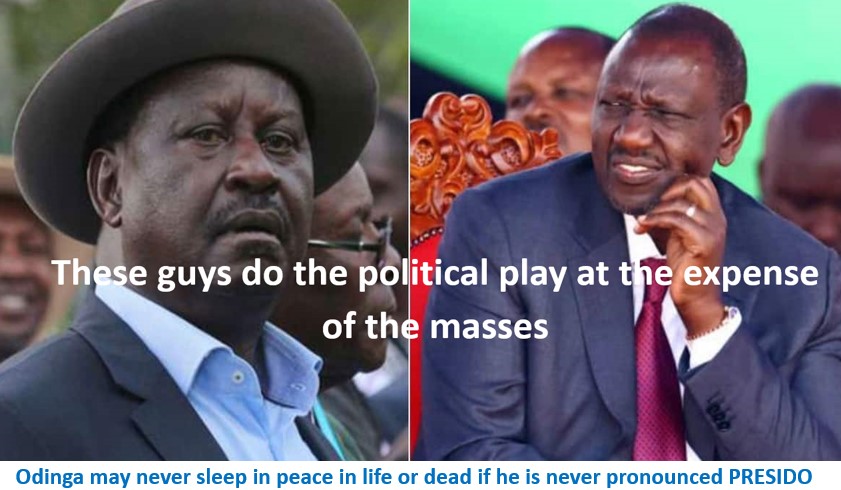President Ruto Sets Conditions for Negotiations with Raila Odinga Amidst Mixed Reactions
Post By Diaspoint | August 1, 2023

President William Ruto has acknowledged meeting with opposition leader Raila Odinga and revealed that he has outlined conditions that will guide their negotiations.
Speaking during interdenominational thanksgiving prayers in Kwale County, Ruto emphasized that no leader should orchestrate violence that leads to loss of life and destruction of property in Kenya.
“It will not continue that there are leaders either present, past or future that will plan violence that will lead to killings and destruction of property or destroy businesses” he said.
While Ruto expressed his willingness to discuss various topics, he made it clear that the safety of Kenyans is non-negotiable, and he will not engage in talks that compromise the peace and security of the nation.
Responding to criticism regarding the absence of the cost of living as a topic for negotiations, Ruto defended Kenya Kwanza’s manifesto, stating that the government is already addressing the issue through various development projects in the blue economy and housing sectors to create employment opportunities for the youth, thereby preventing their involvement in protests.
However, some of President Ruto’s allies urged him to prioritize the interests of ordinary Kenyan citizens in any negotiations with the opposition.
Prime Cabinet Secretary Musalia Mudavadi cautioned against internationalizing election losses and creating unnecessary crises.
He advocated for open dialogue as Kenyans without exaggerating the situation.
Cabinet Secretary Salim Mvurya, along with House Speakers Moses Wetangula and Amason Kingi, maintained a firm stance, advising the President not to engage in negotiations with Raila Odinga and to focus on implementing his agenda, citing Ruto’s clear victory in the elections.
Members of Parliament, including Mwangi Kiujuri, Gonzi Rai, Chiforomodo Mangale, and Tita Taveta woman member Ludia Haika, also urged the President to prioritize the best interests of the nation during negotiations.
Read More from original source
